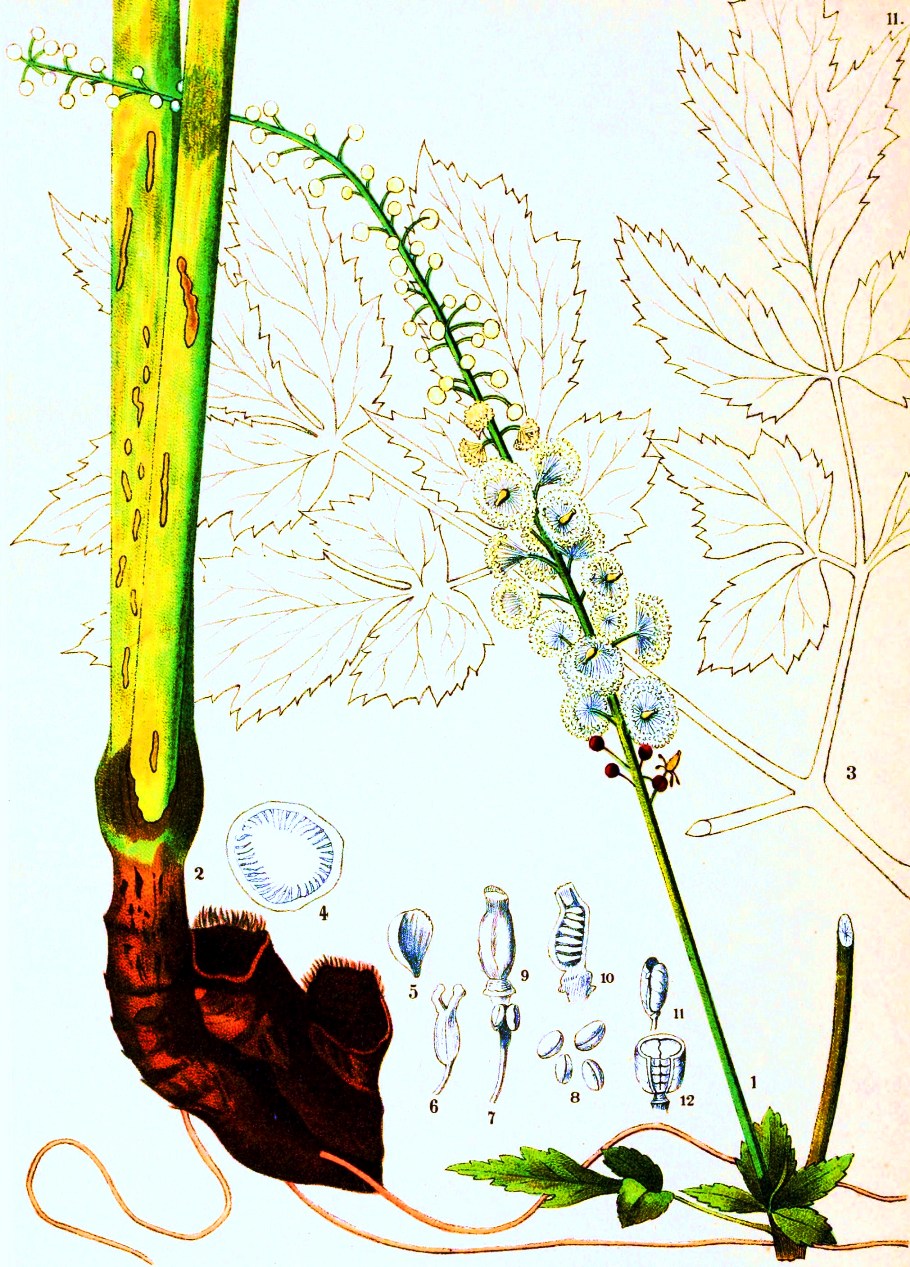
 Black Cohosh (Cimicifuga
racemosa (L.) Nutt.)
Black Cohosh (Cimicifuga
racemosa (L.) Nutt.)
Parts used: dried rhizome and roots
Constituents: triterpene glycosides, isoflavones, aromatic acids,
Actions: oestrogen-like, antirheumatic, emmenagogue
Indications: menopausal flushes, profuse sweating, sleep disorders, nervous irritability, premenstrual syndrome, painful periods, rheumatoid arthritis, tinnitus
Applications: Black cohosh appears to have an oestrogen-like mode of action. It is of value in the treatment of menopausal symptoms such as hot flushes, sweating, anxiety, depressed mood and sleep disturbance.
Combinations: with Celery seed in rheumatism, and with Prickly Ash bark in tinnitus.
Safety: Contraindicated during pregnancy and lactation. Current advice is that black cohosh should be avoided by those with oestrogen-dependent tumours, although the majority of studies suggest a non-proliferative effect. In view of recent controversy implicating black cohosh products in liver damage, those with liver disease should avoid this herb, although it appears likely that the adverse reactions reported are linked to another species of Cimicifuga.
Dosage: 200mg daily









